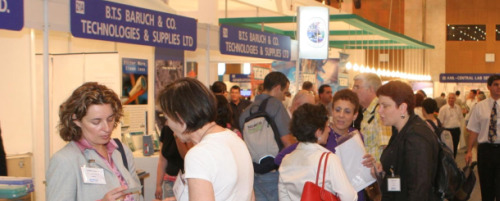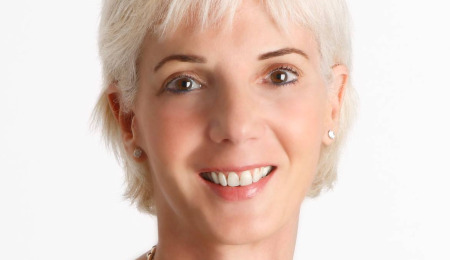Israel’s Biomed 2010 hosts top personnel from Roche, JP Morgan Chase and Johnson & Johnson, at an annual event where multi-million dollar pharmaceutical deals are made.

It’s in Israel, and it’s the second largest biotech convention in the world, says Biomed 2010’s spokesperson Nahum Donitza. Initially its attendees were mainly Israeli academics, but the highly focused meeting of minds soon caught on, with its founding researchers and start-ups grabbing the attention of high-caliber pharma companies and investors. The event has since been instrumental in closing multi-million dollar deals for pharmaceuticals and devices.
“It’s a good meeting point to see your colleagues in Israel,” admits Donitza, whose PR firm has been working with the annual June biotech event for the last decade. He tells ISRAEL21c that it has come a long way from its early days, when it was more like an intimate convention for doctors and researchers, who came to share research ideas, solutions and possible business ventures.
Held by the Israel Life Science Industry (ILSI), the conference, called the Biomedical Innovation Summit this year, is chaired by two industry specialists – Rut Alon from Pitango Venture Capital, who chairs the ILSI, and Israel Makov, former president and CEO of Teva, who now chairs Given Imaging.

Biology-based commercial hotshots
About 7,000 people are expected to converge on the David Intercontinental Hotel in south Tel Aviv from June 14 to 16. More than 1,000 of these guests will be from outside Israel, representing some 35 different countries, with the majority of foreign visitors expected hailing from the US.
Visitors can anticipate exchanging business cards, or at least brushing elbows, with some of the world’s most sought-after opinion leaders. Keynote speakers from the US are to include Dan Zabrowksi, head of pharma partnering from Roche; Robert Huffines of JP Morgan and Chase, Dr. Harlan Weisman, chief science and tech officer from Johnson & Johnson, and Dr. Rachel Humphrey, VP of development for Bristol Myers-Squibb.
“These are really the top hotshots,” says Donitza. And it’s no surprise that there is interest in Israel from these American leaders.
Over the past decade and more, the US has enjoyed a symbiotic relationship with Israel’s active biotech industry. Israeli researchers at leading research universities such as the Weizmann Institute, Hebrew University and Tel Aviv University fuel the biological science, which is often incubated through US partnerships, business advice, funds, and of course the much-desired US Food and Drug Administration’s approval process.
It’s a win-win for Americans as well, who benefit from Israeli biotech innovation and its financial dividends.
Drugs like the unique immunomodulator therapy copaxone, for the treatment of multiple sclerosis, developed by Israeli Prof. Ruth Arnon at the Weizmann Institute, and the camera-in-a-pill made by Israeli company Given Imaging, have changed the approach to the practice and diagnostics of internal imaging in the US.
Learning from the apex of each field
All these billion-dollar ideas had to originate somewhere, and the seed of the next big biotech company could be planted at this year’s Biomed event where investors and VCs can pan over a pavilion of 50 or so very young startups, some from tech transfer companies at Israeli universities. “They are looking for investment money and showing what they have to offer,” Donitza relates.
Some industry favorites and more mature companies will also be among the crowd, like BioView (a cancer cell imaging technology company) and BioLineRx, a drug development company working toward a treatment for schizophrenia. Generally speaking, the companies showcased that will be the most attractive to investors will be those producing medical devices, Donitza believes, simply because it’s faster to bring those to market.
To get closer to the market and to form tighter commercial relationships, representatives of American communities also come to headhunt. A number of US delegations will have booths at the event, including one from Ohio which is looking for looking for promising Israeli companies in the hope of convincing them to relocate to the US.
“People from Ohio are giving Israelis tempting offers,” says Donitza. These encompass “tax incentives, funds, help with relocation, and free marketing support. The mayor of Akron has promised to come,” he adds.
But it won’t just be about meetings and networking with venture capital, companies, entrepreneurs and advisors. Attendees pay to come and learn about advances in the industry from some of those whose research is at the apex of their fields. This year, the focal topics will be applications in cardiology, vaccines, oncology, personalized medication, and metabolic diseases.
Alon, one of the chairs of the conference concludes: “We aim to create a platform where participants have a chance to learn from each other and interact in a way that can lead to joint ventures, investments and other business structures.”












